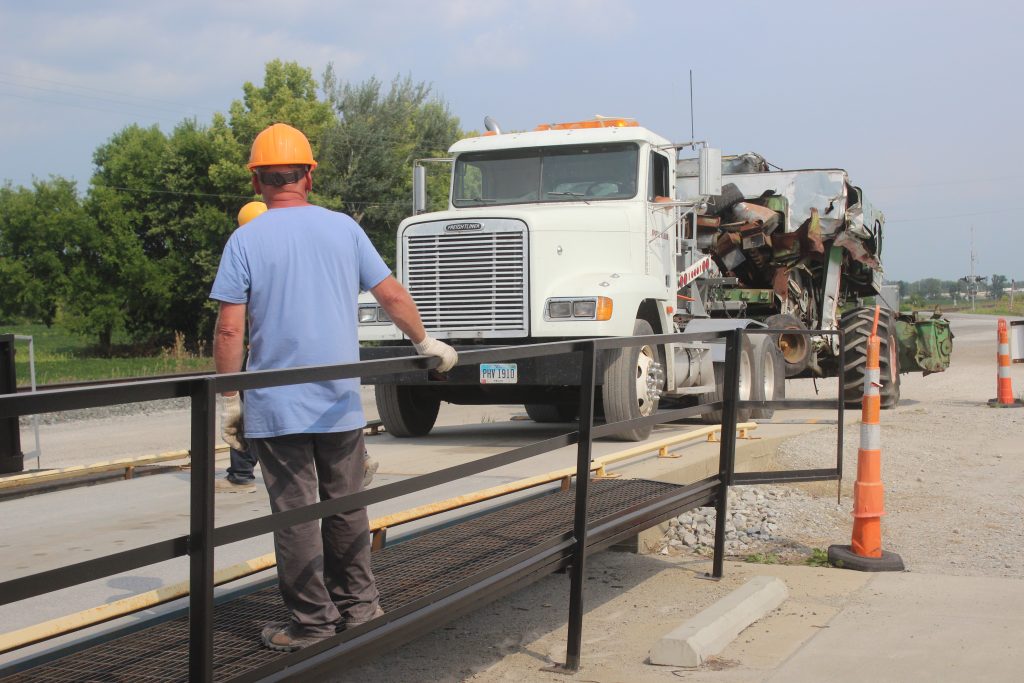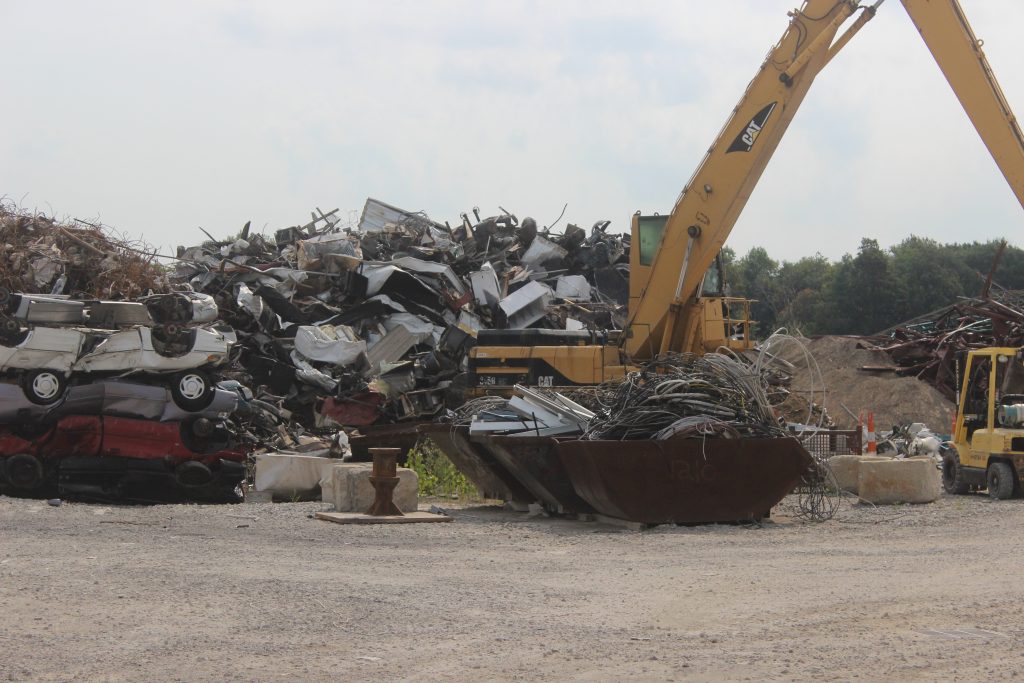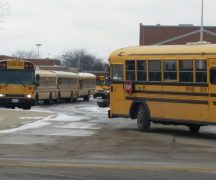By DAVID DUPONT
BG Independent News
The jobs of the nine workers at Bates Recycling could have been headed to the scrap heap as the effects of the coronavirus set in.
The Payroll Protection Program, part of the bipartisan CARES Act, allowed Bates employees to keep not only their paychecks, but their health insurance and retirement plans, as well as the other fringe benefits, that owner and founder Chris Bates provides.
Also, the scrap dealers and individual peddlers who supply the company with its scape metal, copper, brass, and aluminum cans continued to have a place to sell their wares. And the companies who need that product have it.

Of course, the demand side is what made the paycheck program necessary, Bates said. With factories closed, he was having a hard time selling his wares.
The aluminum can market is also soft. The Cygnet company finds itself shipping cans further afield. One recent delivery went to Frankfort, Kentucky.
U.S. Rep. Bob Latta (R-Ohio) visited the company Wednesday, one a number of stops in the region promoting the impact of the CARES Act. These moves were needed, he said, and had to be made quickly.
He said business experts testified that one in four small businesses – those with 500 or fewer employees –would have been shuttered without the Payroll Protection Program. That’s 6,000 businesses in the sprawling Fifth District, which includes all or parts of 14 counties.
Now, Latta said, three of those counties have unemployment rates in the 5-percent range, and the state has an unemployment rate of 8.9 percent.
“It was highly successful program,” he said, noting it did require some regulatory modification after it was launched, and then an infusion of more money.
Now Congress and the Trump Administration are at loggerheads over a follow up bill.
The Democrat-controlled House passed the HEROES Act, which Latta voted against, that appropriates another $3 trillion. The Republican-controlled Senate countered with a $1 trillion act. The negotiations, however, took place between House Democrats and representatives of the Trump Administration.
Latta said that on returning to session in September – he wishes House Speaker Nancy Pelosi was bringing them back a week sooner, Congress will have to find out what money already appropriated has not been spent.
Latta’s first priority, he said, is supporting the search for a vaccine. Dr. Anthony Fauci, director of the National Institute of Allergy and Infectious Diseases, testified that he is optimistic a vaccine will be developed by the first quarter of next year, and possibly the fourth quarter of this year.
That’s the key to getting more people back to work, businesses fully opening, and schools open, Latta said..

Meanwhile Bates Recycling is chugging long, with trucks arriving hauling all manner of scrap. On Wednesday that included a piece of farm equipment wryly marked as coming from Green Acres.
Bates founded the recycling company in 2005. He said he was clearing a property with a lot of scrap metal, and found he liked that aspect of the work.
Now the business handles 35,000 tons of scrap metal and on the non-ferrous side – the copper, brass, and aluminum, the company handles 1,000 tons.
One key is to keep adjusting to changing markets, he said. Looking beyond the pandemic, Bates is optimistic. “The future always looks good.”


